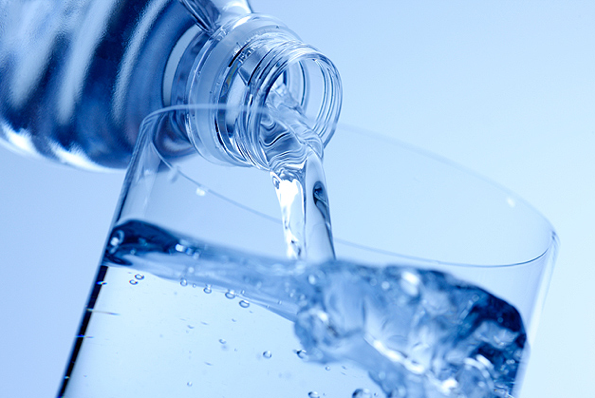When you hear the term “dehydration,” it probably conjures up an image of an athlete pounding the pavement in the hot summer sun. But did you know that dehydration is just as prevalent and problematic—maybe even more so—in the winter months?

This is due to a combination of factors brought on by colder temperatures.
First, the natural response that triggers the sensation of thirst is dulled in the winter, meaning you’re less likely to feel thirsty and to drink voluntarily.
Second, there’s a phenomenon called “cold-water diuresis” that results in increased urination in the winter months, even further depleting your body’s stores. That’s not to mention the extra water you expel via your respiratory system—when you can see your breath, that’s a visible sign of water loss!
Finally, folks tend to bundle up when the temperature drops (particularly in snowy New England), so you may be sweating more than you realize.
With these facts in mind, healthcare professionals are always on the lookout for symptoms of dehydration this time of year. But how can you help stop dehydration before you have to take a trip to the doctor? The answer is simple: drink more fluids! The typical adult needs about two to three liters of fluids per day. If you’re growing bored of plain old water, here are a few other fun, healthy options.
- Herbal tea. As snowflakes drift softly to the ground outside, there’s really nothing like cozying up on the couch with a cup of herbal tea. Herbal teas contain no caffeine, so they won’t mess with your sleep cycle, but they still tout some antioxidant benefits. Plus, they add zero calories and can calm a scratchy throat.
- Seltzer water. Seltzer water is having a real moment right now, and for good reason. It offers the fizz and flavor of soda without the calories or caffeine. Most seltzer waters are flavored simply with natural ingredients. There’s a huge variety of options out there, from Lemon to Creamsicle, and you can purchase seltzer water in cans or bottles to grab on the go.
- Water + sugar-free sweeteners. Another star in the movement against sugary drinks is the sugar-free sweetener, typically packaged as a powder or a liquid. You just add some of the sugar-free stuff to your water, give it a good swirl, and enjoy a low-calorie or calorie-free drink with the added bonus of a little extra flavor. Crystal Light powder has long been a dietitian’s go-to, but more and more options are coming out, including zero calorie, Stevia-sweetened SweetLeaf Water Drops (which are dietetic-intern-tested and approved!).
- Healthy hot chocolate. Of course, there’s nothing wrong with indulging every now and then, especially if you keep your specialty beverage on the lighter side. This hot chocolate recipe contains unsweetened cocoa and only a very modest amount of sugar—and if you want to skip even those calories, use granulated Stevia instead. Add the milk of your choice and a dash of vanilla, plus a sprinkle of cinnamon on top, and you have yourself a sweet, hydrating winter treat without many extra calories.
With these ideas at your fingertips, you should have no trouble avoiding wintertime hydration this year!
